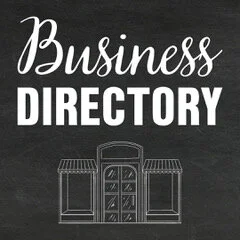Zero To Go Transitions Residential Compost Pickup To Community Compost Company (CCC)
/Photo Credit: Zero To Go
Zero To Go (ZTG), an education-based waste management company focused on composting and recycling, was the first to offer residential pickup of food waste in Beacon in order to keep it from landfills, and eventual methane gas production. After years of operating food composting pickup service in Beacon, Zero To Go has transitioned its Beacon Compost Residential and Farmers Market Collection Program to Community Compost Company (CCC), a New Paltz-based company that is currently servicing several Beacon businesses, according to Zero To Go’s soon-to-be sole owner, Atticus Lanigan. “We are very excited about this,” said Atticus in a letter to Beacon Residential Compost customers, and proceeded to list the reasons:
CCC pioneered the Table to Farm compost collection service in the Hudson Valley and is experienced handling residential and commercial collection.
CCC is a New York State certified woman-owned business based in the Hudson Valley.
CCC is reliable, has great people. and follows the "4P" ethos (People, Planet, Place and Profit).
CCC processes the scraps they collect into organic soil amendments on farms in the Hudson Valley, and is already composting the food scraps from ZTG events and collection.
Zero To Go will continue to service events, and “can be hired to handle waste at events in a responsible way,” said Atticus.
Why Does Methane Gas From Food Matter?
If you’ve never experienced methane gas production, try leaving a smoothie in your car in a closed coffee mug for three weeks, and then open it in your kitchen. Spoiler alert: There is so much pressure built up inside of the closed cup from the food rot process, the top will shoot off and hit anything across the room, cracking your plastic water filter container. Some people build potato guns. You could easily build a smoothie gun with yogurt, bananas and strawberries with minimal effort, just some time.
The History Of Zero To Go
Zero To Go was best known for being hired to manage trash/recycling/food waste at events, and branched into servicing businesses in Beacon by picking up their food waste. Zero To Go, founded by Sarah Womer, then launched a successful Kickstarter campaign to raise $20,000 (see this interview with Sarah in this Tin Shingle Training TuneUp webinar on how she did that), to start their residential food pickup program, originally powered by people on bikes.
Fast-forward years and hours of work later, Sarah took a full time job at Riverkeeper, and Atticus Lanigan came in to manage the company. In addition to raising two children, Atticus has a background in Sociology and Urban Planning, and also works for Dutchess Outreach, an organization fighting food insecurity in Dutchess County that offers a hot meals program (formerly known as a “soup kitchen”).
Says Sarah when A Little Beacon Blog reached out for comment: “Atticus and I put in huge numbers of hours and sacrificed a lot of our own time to run and grow this company (like any start-up owners do)! It's been a real labor of love. It feels good to see the compost program take flight under new ownership - if we have a strong, visible, affordable compost program in town, it's something to be very proud of!”
Today, Atticus continues her work for Dutchess Outreach, and officially moves into the sole owner role of Zero To Go, which will specialize in event waste management. Sarah works in Harlem at a sustainability consulting firm. Both are always moving and shaking in the world of waste management and their commitment to educating about it. They will be contributing in other areas, so keep your eyes peeled.
Plastic Bags Out Of Food Compositing
Plastics bags are leaving the Hudson Valley (see press release about Governor Cuomo banning single-use plastic bags from New York State), including the food compositing arena. Said Atticus to prep customers about plastic bags: “CCC will not be accepting compostable plastics in the buckets, which includes compostable bags. This will be the biggest change as many of you are using compostable plastic bags in the process of getting your food scraps out to your buckets.”
Atticus began preparing Zero To Go customers for a plastic bag transition: “Ultimately, the use of bio-plastics is not ideal. As lawmakers work to deal with the overwhelming issue of garbage, many are seeking the abandonment of all single-use plastics and plastics in general. By drawing ourselves away from the use of it, we will be ahead of the curve.”
SIDE NOTE: Food Rot Container Tip
Fortunately, my compost food collection container is in a very pretty white jar from Pottery Barn, and my food collection system does not involve a plastic bag. The container is a porcelain flour jar that I repurposed to be a food compost container with a rubber-sealed lid. You could also find such a jar at Utensil or maybe even Raven Rose in Beacon. I just walk this pretty pot of rot to my compost bucket outside on my back porch, and that’s it. Happy to not have to wean myself off of a plastic bag! Am currently working on weaning myself off of Ziploc baggies.
To sign up for residential food pickup from Community Compost Company, click here. It’s about $32/month for weekly pickup, and lower rates are available for fewer pickups.







































